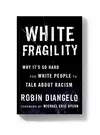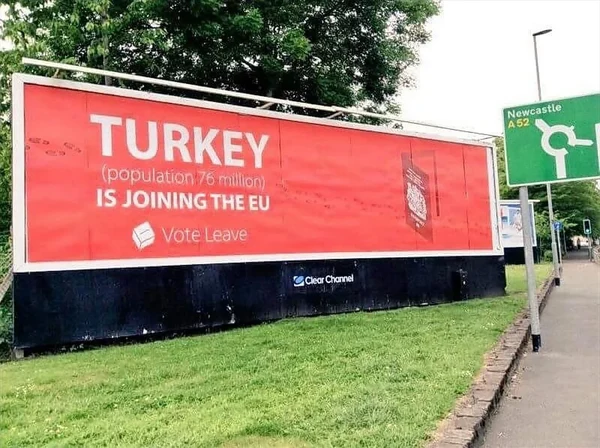!chuds in shambles
All the polling supports the buzziest statistical claim of the 2024 election: Black voters are moving toward Donald Trump. An October 2020 Pew Research survey found that Black voters favored Joe Biden by a margin of 81 points, 89 percent to 8 percent. But four years later, Vice President Kamala Harris's margin of support among this group is just 65 points (79 percent for her vs. 14 percent for Trump). In an extremely tight election, a 16-point drop seems like a very big deal.
My expertise isn't in predicting election outcomes, so I won't attempt to do so using this data. I'm a decision scientist and a retired professional poker player. I study how we make decisions and how we can train ourselves to make better ones. The conversation around Black voters is an example of one theme I plan to explore in this year-long column for The Post: how our instincts about data can lead us to draw the wrong conclusions.
For all the talk about misinformation these days, misinterpretation of factually correct information is what keeps me up at night. The research backs up my concern. A May study by researchers at MIT and the University of Pennsylvania found that information about covid-19 vaccines that passed a fact check but was misleading was much more consequential than misinformation in driving a potentially bad, high-stakes decision. How much more consequential? Try 46-fold.
When we look at the case of Trump and Black voters, the trend is not in dispute. The problem is that we've neglected to gather all the information we need to put the trend in context. We can't know what to make of the numbers --- whether they are big or small, or significant or not --- if we're looking at the data in isolation, as the majority of commentators have presented it.
As is often the case, we have yet to ask two necessary questions of the data: "Compared with what?" and "Out of how many?"
For the movement among Black voters to matter, it must mean a net loss for Harris and a net gain for Trump. When we compare Black voters only to themselves, and no other group, it creates the appearance that this is the case. When we change the comparison to all voting blocs, the picture changes. According to recent polling, Trump is doing worse with White voters, specifically those without college degrees, than he did in 2020 and 2016. I was relieved to see CNN's Harry Enten point this out last week.
In the last two elections, Trump's key demographic --- his base --- has been non-college-educated White voters. In 2016, he did better than Hillary Clinton with this group by 33 points. Then in 2020 he outperformed Biden by 31 points. But according to the latest polling averages, Trump's lead among this group has fallen by 4 points from 2020: He now holds a 27-point margin over Harris.
Of course, Trump's 16-point gain among Black voters feels a lot bigger than Harris's 4-point gain among non-college-educated White voters. Four times bigger, in fact. That is probably why Trump's gain is getting a lot more of our attention.
But this framing cuts off the full picture. Elections are about total votes, so we need to figure out what percentage of the electorate these two groups represent.
According to Pew, Black voters make up about 14 percent of the electorate nationally. In battleground states Michigan, Pennsylvania and Wisconsin, Black voters represent smaller shares of the electorate: 14 percent, 11 percent and 6 percent, respectively. Nationally, non-college-educated Whites make up 40 percent of the electorate, but in those Great Lakes states, they make up 51 percent of the vote. So although Trump's gain with Black voters looks to be four times bigger than Harris's gain with noncollege White voters, Harris's "new voters" demographic outnumbers Trump's by significantly more than 4 to 1.
To give you an idea of how much the proportion matters, if you selected 100 voters at random in Michigan, Trump would be predicted to gain about two Black voters, while Harris could expect to gain about two noncollege White voters. That's a wash. In Wisconsin, Trump would be predicted to gain about one Black voter, while Harris would be predicted to gain about two non-college-educated White voters. That's 2 to 1 in Harris's favor.
This is why it's so important to ask "Out of how many?" and "Compared with what?" When we don't, we're basing our beliefs on a statistical illusion. Making more accurate predictions depends on drawing the right conclusions from that data --- and, just as important, not drawing the wrong conclusions.
In a presidential election, quality information about the state of the race is crucial because it can shape our behavior. Research has shown that polling can influence how people vote, so misinterpreting it has consequences.
Trump's improvement with Black voters might ultimately matter more in the right places than Harris's improvement with White voters. But we can't assume so based on the headlines we're reading today, so we shouldn't make decisions based on them.
I'm writing this column because I've spent my career thinking about these issues. I've discovered that there are all sorts of things we can do to improve our decision-making. Becoming a better consumer of information is at the top of my to-do list. We can learn to ask the right questions about the information we encounter. We can learn to ask for more context. We can become better at avoiding these self-inflicted errors.
Whether at the ballot box or the poker table or the kitchen table, learning how to become better consumers of information is a project worth pursuing. It's a project I am excited to share with you over the course of the next year.




 Diversity Is Our Strength
Diversity Is Our Strength 



Jump in the discussion.
No email address required.
lol, the subtitle has the cope, don't even need to read it.
Jump in the discussion.
No email address required.
More options
Context